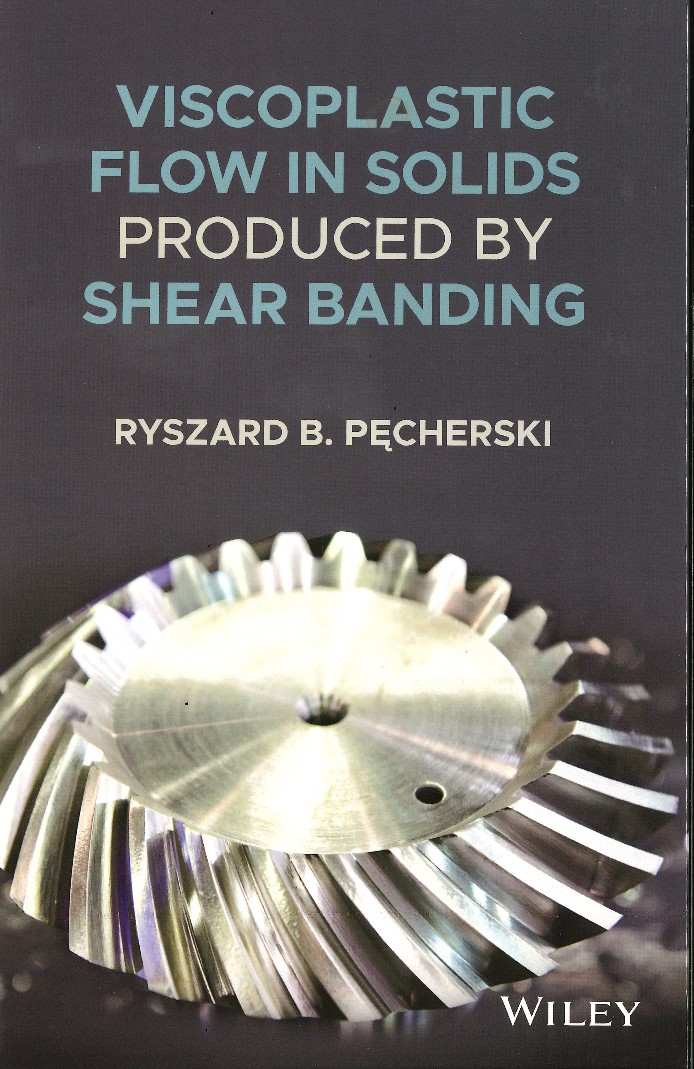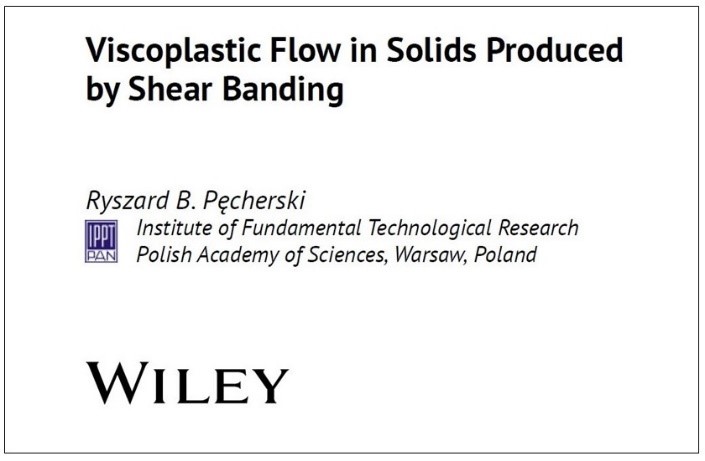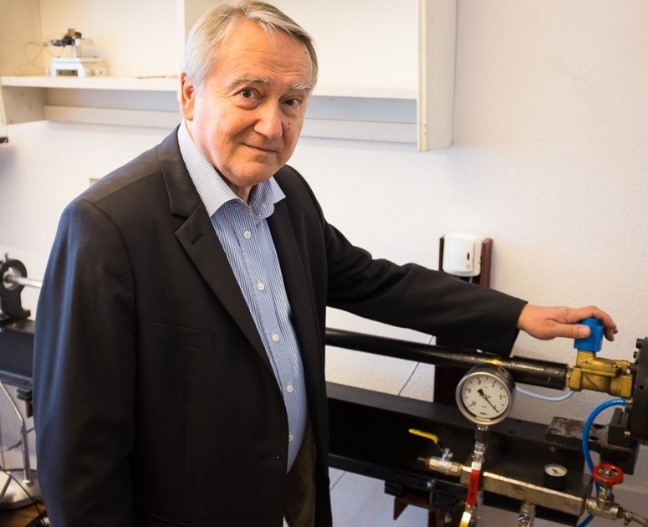

We are pleased to announce that a new book by Prof. Ryszard B. Pęcherski entitled “Viscoplastic Flow in Solids Produced by Shear Banding” has been recently published by Wiley, 2022.
This book presents novel ideas about inelastic deformation and failure of solids in a clear, concise manner. It exposes readers to information that will allow them to acquire the competence and ability to deal with up-to-date manufacturing and failure processes. It also portrays an interdisciplinary and revolutionary understanding of deformation processes. Finally, shear banding's typical mechanism becomes the active cause of viscoplastic flow and not the passive effect.
Viscoplastic Flow in Solids Produced by Shear Banding begins by discussing the new physical model of multilevel hierarchy and the evolution of micro-shear bands. In conclusion, it examines the difficulties of applying a direct multiscale integration scheme and extends the representative volume element (RVE) concept using the general theory of the singular surfaces of the microscopic velocity field sweeping out the RVE. This book reveals a new formulation of the shear strain rate generated by the consecutive systems of shear bands in the workflow integration approach.
This book:
- Presents fresh ideas about inelastic deformation and failure of materials
- Provides readers with the ability to deal with up-to-date manufacturing and failure processes
- Sheds light on the interdisciplinary understanding of deformation processes in solids
Viscoplastic Flow in Solids Produced by Shear Banding will appeal to researchers studying the physical foundations of inelastic behaviour and failure of solid materials, dealing with analysis and numerical simulations of manufacturing forming processes. It is also an excellent resource for graduate and postgraduate students of material science and mechanical engineering faculties.
From Preface:
The thorough Investigations of the new types of materials – nano- and ultrafine-grained metallic solids, amorphous metal alloys called glassy metals, and high-performance alloys – lead to an essential general conclusion. Observing their failure processes, one may notice that a paradigm shift transpires before our eyes regarding the widely known and accepted ductile failure micromechanisms as initiation, growth and coalescence of voids. The recent nonstandard experiments confirm the novel observations about the vital importance of accompanying shear modes, e.g. stereo digital image correlation, the tomograms of X-ray, or synchrotron techniques related to 3D imaging methods.
The book is available on the Wiley website given by the link:
ISBN 978--1-119-61858-4 Ryszard Pecherski
Amazon.com also provides the book: hardcover and kindle.

Professor Ryszard B. Pęcherski is researching in the Department of Theory of Continuous Media and Nanostructures at the Institute of Fundamental Technological Research, Polish Academy of Sciences in Warsaw. He received his MEng from the Gdańsk Polytechnic Department of Shipbuilding in Gdańsk, Poland, in 1973, his PhD in 1979 and DSc in 1998 from the Institute of Fundamental Technological Research in Warsaw. He has been a member of the research staff since 1977. He was a Fellow of the Japan Society for Promotion of Sciences, Tohoku University, Sendai (Takeo Yokobori), Japan, from 1979-1980 and a Fellow of the Aleksander von Humboldt-Foundation, University of Hannover, Hanover, Germany, from 1983-1987 (Erwin Stein) mentioning host professors. He was a member of the faculty of Civil Engineering at Cracow University of Technology, Kraków, Poland, from 2000-2007, and he received the title of Professor in October 2007. Finally, from July 2007-February 2022, as a member of the Mechanical Engineering and Robotics faculty at AGH University of Science and Technology in Kraków, he taught English courses on mechanics of materials. He also Invited lecture courses delivered in the International Centre for Mechanical Sciences, CISM, Udine 2012 and the Summer School of Mechanics in Agadir, Maroc, 2013, related to modelling inelastic behaviour of solids accounting for micro-shear banding. His lectures on the mechanics of modern materials in École Nationale d'Ingeniéurs de Metz, 2014 (Alexis Rusinek – host professor) contained the earlier threads and ideas woven into the concept of the work.















